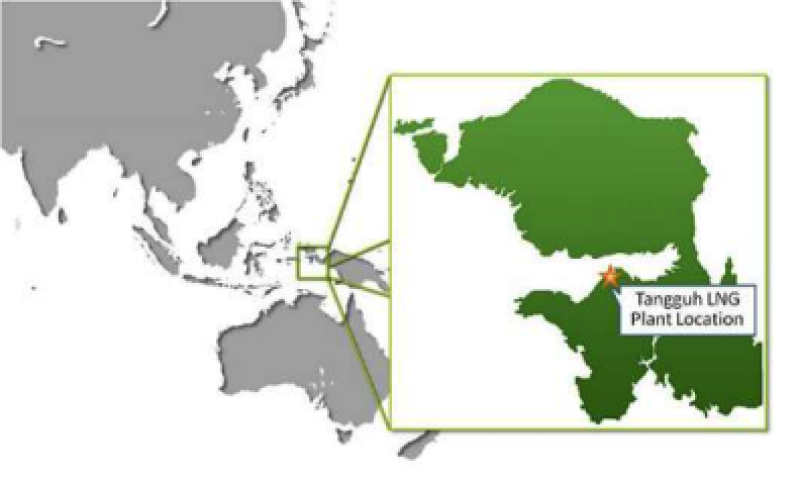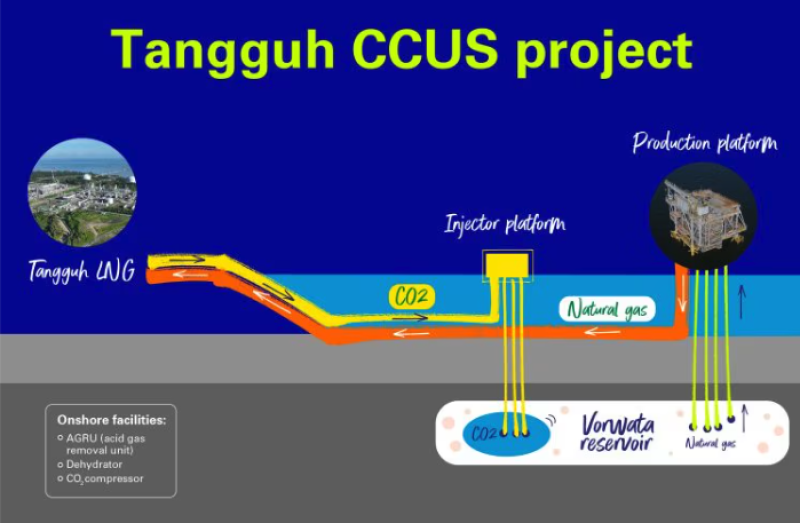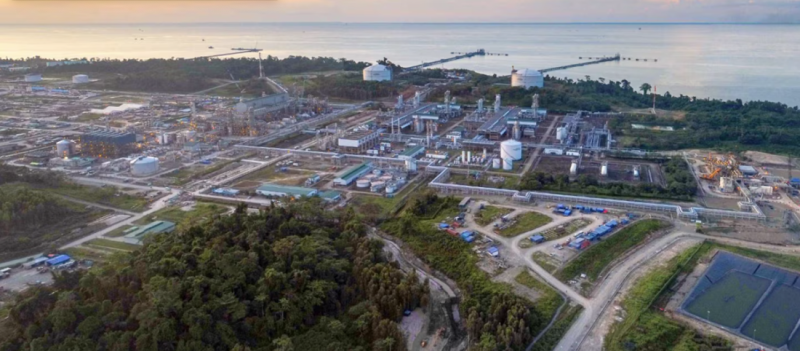BP announced on 22 November that it has reached final investment decision (FID) on the $7 billion Tangguh expansion phase 2 project in Indonesia.
The Tangguh project will see the development of the offshore Ubadari gas field and include the use of carbon capture, use, and storage (CCUS) and onshore compression. The Tangguh Ubadari, CCUS, Compression (UCC) project could unlock around 3 Tcf of additional gas resources in Indonesia, BP said (Fig. 1).

In announcing FID, BP CEO Murray Auchincloss said the Tangguh UCC project represents an Indonesian first through the use of CCUS to maximize gas recovery. The UCC project in Bintuni Bay consists of development of the Ubadari gas field, enhanced gas recovery through CCUS, and onshore compression. It will expand and use existing infrastructure at the Tangguh LNG facility in Papua Barat, Indonesia. First production at Ubadari is expected in 2028.
The Indonesian government approved the Ubadari gasfield development and the Vorwata enhanced gas recovery/CCUS development plan in August 2021 (Fig. 2).
According to BP, which leads the project, Tangguh CCUS aims to be the first CCUS project developed at scale in Indonesia. BP said it has the potential to sequester 15 million tonnes of CO2 from Tangguh’s emissions in its initial phase.

Continued Development
The UCC project will continue the development of Tangguh LNG, which saw a third LNG train begin operation in 2023. Train 3, which received a key permit in 2021, brought the plant’s total liquefaction capacity to 11.4 mtpa. Tangguh LNG is a unitized development for six gas fields in the Wiriagar, Berau, and Muturi production sharing contracts in Bintuni Bay.
Once completed, Tangguh UCC will have three injection wells, one offshore injection platform, one offshore CO2 pipeline, and onshore facilities for CO2 removal, processing, and compression. The UCC project will extend the gas feed to Tangguh LNG, while the enhanced gas recovery and CCUS will reduce the Tangguh LNG carbon footprint through CO2 sequestration, BP said.
According to BP, 99% of Tannguh’s operations workforce is Indonesian.
BP operates Tangguh LNG on behalf of Tangguh PSC partners with 40.22% participating interest. Partners include:
- MI Berau B.V. (Mitsubishi Corporation, Inpex Corporation) with 16.3% interest
- CNOOC Muturi Limited with 13.9% interest
- Nippon Oil Exploration (Berau), (JX Nippon Oil and Gas Exploration Corporation, Japan Organization for Metals and Energy Security) with 12.23% interest
- KG Berau Petroleum (Japan Organization for Metals and Energy Security, Mitsui and Co., JX Nippon Oil and Gas Exploration Corporation, Mitsubishi, Inpex) with 8.56% interest
- Indonesia Natural Gas Resources Muturi with 7.35% interest
- KG Wiriagar Petroleum with 1.44% interest


